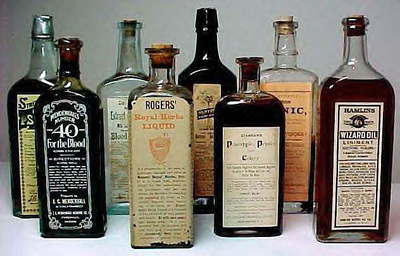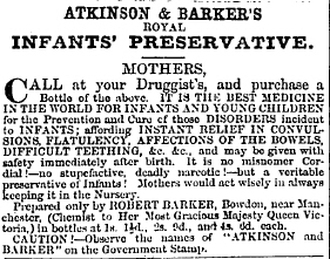The Industrial Revolution
Although America inherited certain technologies and traditions from Europe, it still began its evolution as a country from a society based on agriculture towards one revolving around industrial production of goods. Starting in England, the Industrial Revolution of the 1800's ultimately transformed the world both culturally and technologically, and brought new perspectives of living to the United States; but its influence included both positive development and moral regression.
Food IndustryFood Adulterations in America (1800's) cited by British scientist Accum and partner:
|
Medical Industry & Public Health"Throughout the 1800's, in an era of limited physician tools for treating illness that had been scrutinized and supported by empirical evidence and the scientific method, an increasingly urbane population in the United States developed an appetite for medical elixirs. Marketed through exoticism, mystery, and grandiose claims of efficacy, these medicines claimed to cure everything from cancer, venereal disease, female troubles, stomach aches, and epilepsy. One product sold widely in the late 1800's and early 20th century, William Radam's Microbe Killer, boldly declared on the label 'Cures all diseases,' while Dr. Sibley advertised that his Solar Tincture was even able to 'restore life in the event of sudden death.' In fact, these products often simply relied upon opiates, cocaine, or alcohol...to make imbibers feel better or 'cured;' however, in many cases, they contained toxic ingredients such as acetanilide or cresyl phosphate (an organophosphate causing nerve paralysis)." (Society of Toxicology)
|
"The Industrial Revolution has tended to produce everywhere great urban masses that seem to be increasingly careless of ethical standards"-Irving Babbitt
As Babbit claims, ethical standards in America's new expanding food and medical industry were mostly abandoned as profit and success in business became the primary concern. Responsibility of commercial honesty was disregarded, and the consumers' rights to choice of consumption was completely lost.


